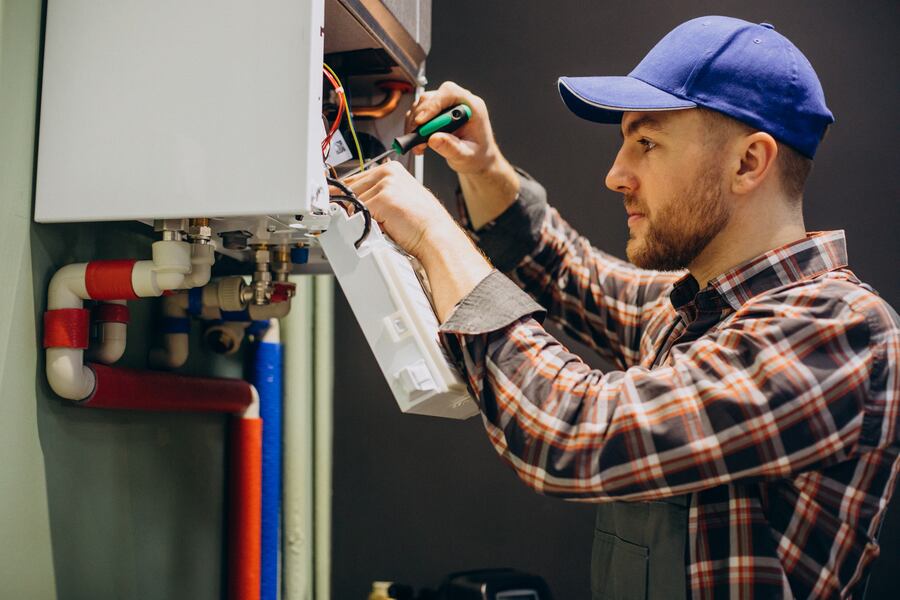Call This Thursday to Get $50 OFF
Call us today
214-943-2424

Kings of the past had to summon servants to haul and heat water whenever ‘their highness’ wanted a warm bath. Fast forward a couple of centuries and we live like true kings. We can get perfectly heated water by simply turning a handle. No royal court required.
Hot water is such a daily convenience now that most of us don’t even think about it – until it’s suddenly gone. Then, we find ourselves scrambling to find a plumber and determine whether to repair or replace the unit.
If the old unit is far gone or awfully out of date, then a replacement is typically the cost-effective and prudent option. Then, the question often comes down to “tank or tankless?”
In this brief article brought to you by Texas Rooter, we share our case for each. The decision ultimately depends on your needs and preferences, as well as the layout and condition of your plumbing system.
Tank-style water heaters are the traditional version that most of us grew up with. They store a large amount of water (typically 40 to 80 gallons) in an insulated tank and keep it heated at all times. When you open the tap, that hot water flows from the tank to your faucet or shower.
Tankless water heaters, also known as on-demand units, eliminate the storage part of the old process. Instead, they heat water as it passes through the piping. When you turn on the tap, burners or electric elements kick on to heat water on the spot.
Both systems get the job done; that is, they heat water and get it to your faucets, taps, and showerheads. The difference lies in how they fit your lifestyle, usage habits, and home layout.
If you prefer simplicity and reliability, then a tank water heater may be your best bet. These systems have been around for many decades and they have fewer complex parts. This makes them easier and often cheaper to install. Any qualified plumber can repair or replace one without much fuss.
Moreover, a tank-style water heater might be right for you if you prefer:
However, tanks do have downsides. They take up more space, waste energy keeping that massive tank of water hot when it’s not being used, and can run out of hot water if demand exceeds capacity.
A tankless water heater is a more modern solution and appeals to those who prioritize energy efficiency and space savings. Because it heats water only when needed, tankless units can dramatically reduce standby energy losses.
Additionally, a tankless water heater might suit your home if you prioritize:
The trade-off is cost. Tankless systems are pricier to install, and even costlier if switching from a traditional tank. Moreover, water heater repair can get tricky as parts are harder to find.
No matter which type you choose, maintenance is key. Routine flushing, pressure checks, and valve inspections extend the life of your system and keep it efficient.
Whether you need a new installation, that inevitable replacement, routine maintenance, or an emergency plumbing repair service, the uniformed team at Texas Rooter is here to help. Call or message Texas Rooter to get in touch today.
Trying to rinse a greasy pot with a weak stream of water can test anyone’s…
Read MoreReplacing a toilet sounds simple at first. You shut off the water, remove the old…
Read MoreWhen most people hear the words pipe repair, they picture broken…
Read MoreThe sewer line is a core part of any habitable property, but they're out of…
Read MoreGarbage disposals are designed to make kitchen cleanup easier, not to handle everything that comes…
Read More